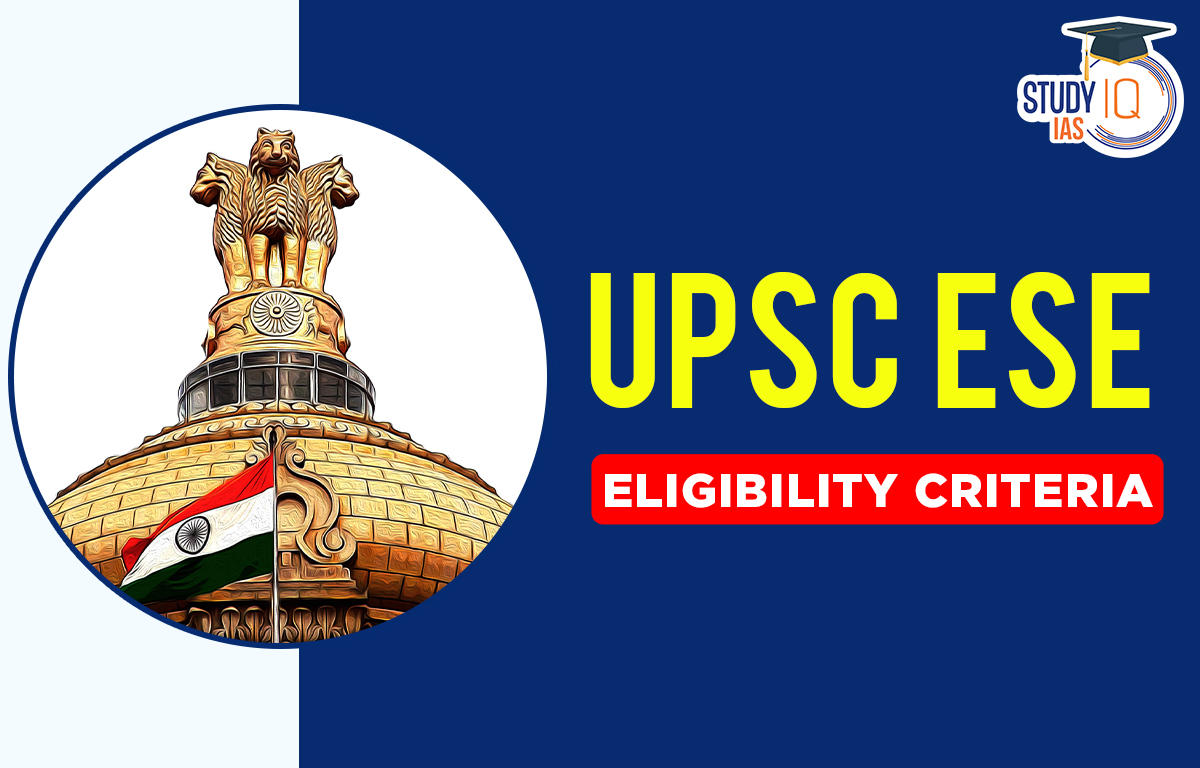Table of Contents
UPSC ESE Eligibility Criteria
The Union Public Service Commission determines the requirements for UPSC ESE (IES) eligibility. For IES 2023, graduates or students in their final year of engineering can apply online. The date of the IES Main exam this year is June 25, 2023. There are 327 positions in total for this year’s UPSC IES recruitment drive..
UPSC ESE Exam 2023 Overview
Union Public Service Commission Indian Engineering Services is the abbreviation for this term. To find engineers for various government agencies and organisations, UPSC holds a national-level competitive examination. This post will cover every aspect of the UPSC ESE exam in detail. Preliminary, main, and interview results will be used to choose the candidates. In a word, the recruitment procedure goes as follows.
|
UPSC ESE Exam 2023 Overview |
|
| Exam Particulars | Exam Details |
| Name of the Exam | UPSC ESE 2023 |
| Exam Conducting Body | Union Public Service Commission |
| Mode of Application | Online Mode |
| Mode of Exam | Offline Mode |
| Number of Vacancies | 327 Posts |
| Notification Date | 14th September 2022 |
| UPSC ESE Application Last Date | 4th October, 2022 |
| UPSC ESE Prelims Exam | 19th February 2023 |
| UPSC ESE Prelims Result | March 2023 |
| UPSC ESE Mains Exam | 25th June 2023 |
| UPSC ESE Interview | To be Notified |
| Number of Attempts | 6 attempts |
| Stages of Exam | Exam has 3 Stages
|
| Official Website | www.upsc.gov.in |
UPSC ESE Eligibility Criteria 2023
A candidate must meet the UPSC IES eligibility requirements 2023 before applying for the test. The candidate would not be reimbursed for their exam fees if they later discovered they were ineligible. The eligibility requirements for the UPSC IES 2023 are based on a variety of criteria, including nationality, educational background, age restriction, etc. Candidates from the reserved categories are also granted a few exceptions to the rules for the higher age restriction.
|
UPSC IES Eligibility Criteria 2023 |
|
| UPSC IES exam (Age Limitations) |
|
| UPSC IES exam Educational Qualifications | Degree in Engineering |
| UPSC IES exam Attempts Details | No Limitations |
| Nationality for IES exam | Indian |
| Age relaxations for UPSC IES exam | Relaxations are provided based on category and services |
UPSC ESE Age Limit
The minimum age limit for the UPSC IES test is 21 years old, while the upper age limit is 30 years, according to the IES Age Limit Criteria.
- The candidate’s birthdate cannot be between January 01, 1999, and January 02, 1990.
- Candidates must meet the IES Age Eligibility requirements by January 1, 2020 in order to be considered for IES 2023.
- Those who have worked for any government agency are eligible for a 5-year age relaxation on the upper age restriction.
- According to UPSC, any government employee who applies for IES or ESE will receive the age reduction even if they are currently employed in a position that is regarded as belonging to a higher officer cadre.
- For those who have contractually worked for a government organisation for three years or longer, there is an age relaxation. The contractually based services will be counted through January 1, 2020.
- Candidates who are from Jammu and Kashmir or who are members of the SC, ST, OBC, PWD, or ex-servicemen will additionally obtain a 5-year age exemption on the maximum age limit.
|
UPSC ESE Age Limit |
|
| Category | Upper Age Limit |
| General/UR | 30 years |
| Other Backward Classes or OBC | 33 years |
| Scheduled Caste / Scheduled Tribe | 35 years |
| Physically Handicapped Candidates | 40 years |
| Jammu & Kashmir Residence |
|
| Disabled servicemen discharged from duty |
|
| Ex-serviceman with 5 years duty (5 years of relaxation) |
|
UPSC ESE Education Qualification
Candidates must meet the minimal educational requirements for the exam in order to meet all the eligibility requirements. A degree in engineering from an accredited university is the prerequisite education for taking the UPSC IES exam in 2023. The complete list of requirements for education issued by UPSC for taking the IES examination in 2023 is listed below:
- Candidates must hold an engineering degree from a school that has been accredited by the Central Government, a State Government, or the University Grants Commission.
- The Institution of Engineers (India) required candidates to have passed sections A and B of the institution examination.
- Candidates must hold an engineering degree or diploma from an institution outside of India that has been recognised by the Indian government.
- Candidates who have passed the Institution of Electronics and Telecommunication Engineers’ (India) Graduate Membership test.
- Aeronautical Society of India’s Associate Membership Examination Candidate Parts II and III or Section A and B
- The Graduate Membership Exam of the Institution of Electronics and Radio Engineers, London, administered after November 1959, must have been passed by candidates.





















 WhatsApp
WhatsApp